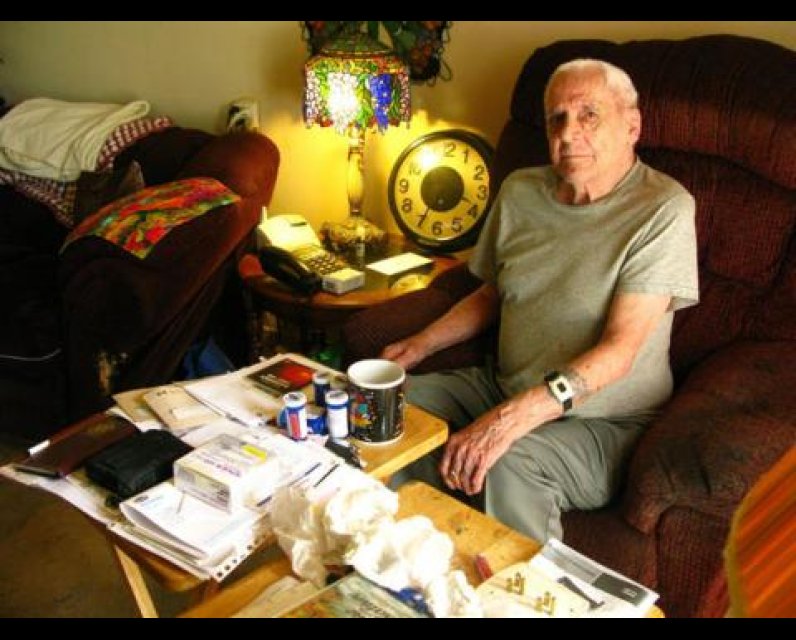Warning message
- Last import of users from Drupal Production environment ran more than 7 days ago. Import users by accessing /admin/config/live-importer/drupal-run
- Last import of nodes from Drupal Production environment ran more than 7 days ago. Import nodes by accessing /admin/config/live-importer/drupal-run
Unpublished Opinions
Looking back over 81 years I had the good fortune to have had a wonderful mom, a great wife and family, a successful career in business and excellent health. Sure there were ups and downs but they were too few to mention. Retirement for me means giving back some of that good fortune and I have chosen to advocate for those citizens who for reasons of their own cannot or will not fight for themselves. They include the old, sick poor, disabled and homeless.
City loses track of 131 needy seniors

Since I have been fighting with Kent Kirkpatrick, Steve Kanellakos, Rick O’Connor, Jim Watson and all City Council for more than five years on this issue, I thought I would take this opportunity to inform the good citizens of Ottawa about the complete lack of interest demonstrated by City Hall in needy seniors. People whose income is mainly from pensions that range from about $11,000 to $14,000 per annum.
Please share this letter with anyone you think may be interested in helping to build public awareness and lobby City Hall on behalf of these needy seniors.
Sir or Madam,
You may have an interest in the following;
Even after City Council approved and staff implemented policy changes in 2011,131 low income seniors fell through the cracks and continue to be without those items and services. Please see the PDF document link to this post for more information.
City solicitor Rick O’Connor gave this explanation.
Dear Mr. Rheaume,
With respect to your specific questions about the 131 cases, the Social Assistance Services Branch has advised that staff did not follow up with the 131 people that were not eligible due to their asset levels from 2003 to 2005, and therefore the City has no information/records about their current financial situations or personal circumstances.Rick O’Connor
I believe it is wrong and irresponsible that Staff failed to maintain accurate and up-to-date records of these people. As a result, those seniors continue to endure more than three additional years of living without City approved services and benefits.
I believe it is appropriate and necessary for the City to conduct an immediate and thorough search for those seniors, and to then assist them in obtaining their benefits.
BACKGROUND
The Essential Health and Social Supports (EHSS) program was established in 1998 to fill a gap created when the Province abolished the Special Assistance (cost shared 50/50) and Supplementary Aid Programs (cost shared 80/20) that assisted low income residents with essential health related items. The EHSS Program is 100% funded by the City of Ottawa, and approved by Council. Low-income residents are assisted with the purchase of items or services such as dental care, vision care, medical supplies such as prosthetic appliances, diabetic supplies, hearing aids, and bathroom aids, as well as essential appliances, funerals and burials. Many EHSS applicants have one-time requirements for the above-mentioned items or services, while others have longer-term needs that require ongoing case management by Social Services staff.
The Home Support Services (HSS) Program promotes quality of life for eligible residents of Ottawa by providing and purchasing home help services including housekeeping, instruction on preparing nutritious low-cost meals, respite child care and delivering workshops in the community on topics such as cooking, parenting and living on a low income. The program is 80% provincially funded subject to an annual subsidy allocation limit but open to review with the Province.
On April 12, 2006, Council approved a recommendation to increase the asset limits for both EHSS and HSS to those allowed under ODSP (an increase from $3,000 to $5,000 for single people). Although the ODSP asset limits were adopted, the asset exemption policies were not.
On June 2009, Councillor Alex Cullen put forward a motion to explore increasing the asset limit for EHSS and HSS from the current $5,000 to $10,000 for non-cash items. Staff was directed to review this proposal including costing and implementation considerations.
On February 10, 2010 Council approved the Ottawa Poverty Reduction Strategy. Recommendation 2, which falls under the strategy to provide a service system that benefits people in need, relates to the EHSS and HSS Programs as follows:
“Streamline the needs assessment of Essential Health and Social supports and Home Support Services for people in need”.
Note:
The identities and historical information for those seniors may be stored in the following city computers:
- The provincial system called SDMT which stands for Service Delivery Model Technology
- The RSVP (City of Ottawa system) which stands for Record Services and Verify Payments
This is how I believe the program should work after those files are found:
- Social workers will to be informed of the new LICO rules
- Each senior will be notified by phone or personally visited by his or her social worker
- Social worker will explain the new LICO rule changes and how they could affect his client’s benefits
- Social worker will assist his client to complete the application. If the client is incapable of understanding or completing the application, an attorney for personal care would do so on his behalf
- Social worker will follow policy and procedures and have the application processed without delay
- The client will be advised of his eligibility within a reasonable time frame



Comments
Be the first to comment